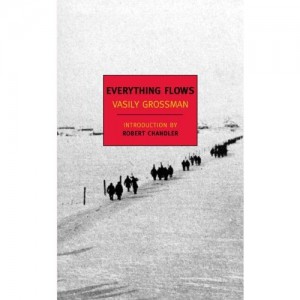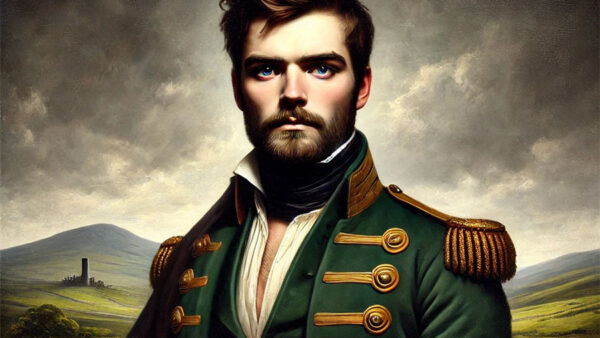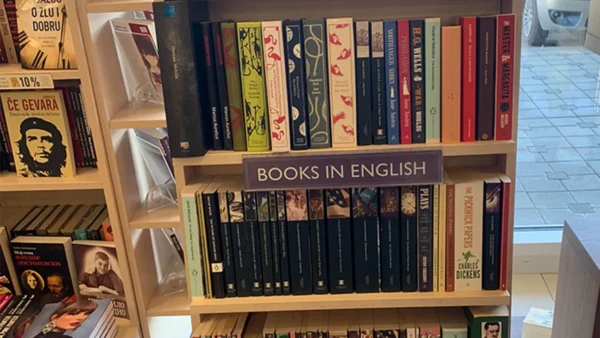I’m reviewing this book as part of the Literature and War Readalong hosted by Caroline of the excellent book blog Beauty is a Sleeping Cat.
The first thing to say about this book is that it is unfinished. The second thing to say about it is that it’s brilliant. Which leads me, of course, to the third thing:
How good would this book have been if Grossman had finished it?
Let’s start with the good things.
Vasily Grossman brilliantly depicts the horror of Stalinist Russia side by side with the absurd official propaganda. He tells us of a plan to deport Jews to Siberia on the pretext of protecting them from a pogrom which the authorities themselves had provoked:
And this mass deportation would be an expression of the eternally vital spirit of internationalism which, while understanding the wrath of the people, could not tolerate lynchings and mob law. Like everything else that took place in the Soviet Union, this upsurge of spontaneous fury had been conceived and planned well in advance.
Grossman sees the humanity in everyone, even those who betray their friends. The main plot of the novel concerns Ivan returning to Moscow after thirty years in the Siberian gulag. Stalin has just died, and there’s a kind of reckoning for all the crimes that have been committed. Ivan confronts relatives and friends who either betrayed him or did nothing to help him, people who’ve done very well in the intervening decades and are now prosperous.
But instead of seeing these confrontations from Ivan’s point of view, we see them first from the point of view of the guilty parties. This is far more interesting, because we identify with them and even feel sorry for them. We see them not as bad people, but as people who tried to do their best, people who are sorry and want to apologise, but can’t seem to do it and so launch into self-defence instead. It makes the scenes very poignant.
Sometimes Grossman gives us stories of apparently vile people doing despicable things, and asks, “Who is guilty? Who will be held responsible? This question needs thought. We must not answer too quickly.” He then gives more information to help us understand why they acted as they did. He shows us people’s humanity. There are no stock villains here. The fault is not in people, but in a system that forces them to awful things.
But do you know the vilest thing of all about stool pigeons and informers? Do you think it is the bad in them? No! The most terrible thing is the good in them; the saddest thing is that they are full of merits and good qualities. They are loving and affectionate sons, fathers and husbands … They are capable of real achievements of virtue and labour.
Then there are the scenes that just make you cry. The description of a village in the Ukraine having all its grain confiscated, and all the villagers slowly dying over the winter, is just brutal in its detail and emotional power. We hear of people digging for worms and boiling their cats and making bread from acorns and eating rats and making noodles out of shoe leather. We hear of children crawling to the city and starving on the streets, of people gnawing the leg of a stool in mad hunger, of mothers eating their own children, of decomposing bodies falling apart when people tried to drag them off to be buried.
I understood then that every starving man is a kind of cannibal. He eats the flesh off his own body. He leaves only the bones. He consumes his last droplet of fat. Then his mind goes dark – he has eaten his own brains. The starving man has eaten himself up.
And again, there’s the sudden grotesque appearance of official propaganda, as a famous French minister tours the area and is shown happy villagers eating “chicken soup with pies and rice croquettes.” Even just re-reading that chapter to find these quotes made me cry all over again.
Grossman is quite an allusive writer, and fortunately the translator Robert Chandler has provided us with very comprehensive footnotes to understand all the references, as well as explaining phrases that would have been well-known at the time but are less so today (e.g. when the secret police told you your relative had been sentenced to “ten years without right of correspondence”, it meant he’d been shot).
The ‘unfinished’ part
Where it becomes painfully clear that the book is unfinished is in the structure. The book starts out as a novel, but gradually becomes more like a series of essays. There’s a half-hearted attempt to keep the novel going by putting the essays into the mouths of his characters, but basically this is Vasily Grossman talking to us, telling us what he thinks of Lenin, of Stalin, of the purges and arrests.
It’s all important and interesting, but in no way fits in with the rest of the novel. The action basically stops at a certain point, and the essays are bolted on, with a few hasty lines explaining that these are the thoughts of a character. Even the beautiful description of the Ukraine famine that I mentioned earlier is completely unbelievable in the context of the novel – it just comes out of one character’s mouth suddenly, in one incredibly long piece of uninterrupted dialogue. Although I wish people really did talk like this, in reality they don’t.
It’s heartbreaking in a way: I can picture the cancer-ridden writer pounding away at his typewriter, full of important things to say but running out of time in which to say them. I can imagine him realising he would never finish, and just trying to get down what he could. As a reader, the fragmented nature of the book did mar the reading experience. The fragments were brilliant, but the whole was a little disappointing.
To answer the question I posed at the start, I think that if Grossman had finished Everything Flows, it would have been a masterpiece. It would have been even better than his other book Life and Fate, which is one of the best books I’ve read in years. In its current form, I think it’s worth reading for its wonderful, humane insights into life under a dictatorship, but is let down by the structural flaws. If you haven’t read anything by Vasily Grossman before, I’d recommend starting with Life and Fate.
Update: For Caroline’s review as part of the Literature and War Readalong, click here. Another good review is over at Silver Threads.





There are 9 comments
I have heard such great things about this book. I had no idea that this was so unfinished.
Stalinist Russia truly was a bad place to be and this was a horrendous time in history.
It was a horrendous time, and that’s why Grossman’s humanity and compassion are so important. He doesn’t judge anyone, even the spies and informers, presumably because he understands the pressure they were under. He has a line somewhere in the book about a single human coming up against the full might of one of the most powerful, brutal states in world history, and it really brought home how difficult it was under such a system to do the right thing, or even to know what the right thing was.
Thanks for the kind words about my blog and for participating, Andrew.
A great review, as usual.
I’ve read it in a German translation and the afterword says that it appears unfinished but it’s not. He wanted to include those non-fiction parts. However, I think he certainly would have made it a smoother read. The fictional parts are so much better, from a style perspective.
Time was his enemy when he was writing this.
That’s very interesting about the German translation. My English translation definitely said it was unfinished! Then again, there are different levels of “finishing”. Authors always go through multiple drafts, so perhaps if he’d had time he would have done further drafts to smooth things out.
Brilliant review, Andrew! It is interesting that the confrontations between Ivan and the guilty parties is portrayed through the point of view of the guilty parties and we end up sympathizing with them. I think that is an elegant and powerful thing that Vasily Grossman has done. I didn’t know about the Ukraine famine. That is really sad. Sorry to know that the nonfiction parts of the book don’t hang well together with the fiction parts. Your description of Vasily Grossman pounding away at his typewriter trying to put down everything he wanted to say before cancer takes him away was very poignant and heartbreaking. It is sad that Grossman couldn’t finish the book. I would love to read this book sometime. I will add this to my ‘TBR’ list. Thanks for this wonderful review.
Thanks Vishy! Yes, the way he portrays the confrontation is very powerful, and much more humane than if it was done through the eyes of Ivan, whom we naturally sympathise with. Grossman doesn’t judge anybody for what they did – he holds them accountable, and says it was terrible, but shows us how understandable it was.
Yes, I wish he’d finished! Have you read Life and Fate? I’d recommend that rather than this one. Has the same beautiful writing, but is more complete.
Thanks for the recommendation, Andrew. I haven’t read ‘Life and Fate’. I will add that to my ‘TBR’ list and will read that first before reading ‘Everything Flows’.
cheaps ugg
ugg boots https://www.kiransoniarts.com/